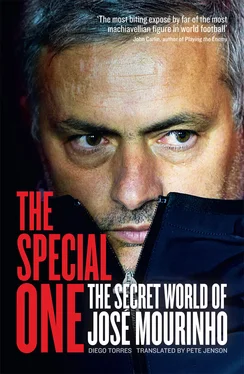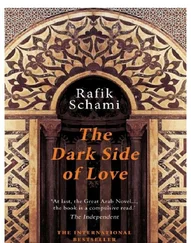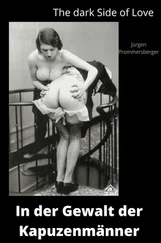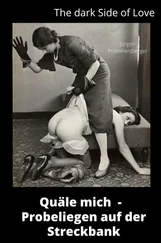A philosophy graduate who cut his teeth in business administration with Sega, the electronic games company, serving as head of operations in Southern Europe, Sánchez is the most influential executive in Spanish football. When Pérez hired him for the club in the spring of 2000 he was 32 years old. Nobody imagined then that Pérez was preparing the ground for the development of someone who would dominate the Spanish league with an iron fist from 2006 onwards, contributing to the rapid enrichment of Madrid – and Barça – and, as a consequence, putting the finances of the other clubs in the Spanish league at serious risk. If the unequal distribution of TV income in Spain is something unique in Europe then that is in large part thanks to Sánchez’s ability to take advantage of the entanglement of delay, carelessness and incompetence spun by the three institutions that should be ensuring football’s economic health: the Ministry for Sport, the Spanish Football Federation and the Professional Football League.
Madrid’s chief executive since 2006, Sánchez radiated all the enthusiasm of a young lover as he considered Madrid’s future: the possibility of fusing the economic power of the world’s most popular club with the taste for propaganda of a coach capable of surpassing the publicity extravaganzas of any of the companies with which he had previously been involved. His spirit of curiosity was intrigued. Enthusiastic by nature, this master of marketing understood that he had uncovered possibilities hitherto untapped in the world of sport. It would be a pioneering experiment.
Sánchez needed to finish convincing Pérez when events took an intimidating turn. The elimination of Madrid from the Champions League last-16 against Lyon in March 2010 began to erode the president’s normally serene spirit. Barcelona were still on their way to a final that this year would be played at the Bernabéu. The possibility of an arch-rival – and Guardiola – winning their fourth Champions League in Chamartín was an outrage for Madrid’s more closed-minded supporters and an unbearable affront to Pérez.
Barcelona’s advance shifted the balance of power in Spanish football away from the capital. For the first time in 50 years Real Madrid, the club with the greatest number of European trophies, were no longer the reference point. This change in dominance, just when the Spanish national team was enjoying a golden era at all levels, led to inevitable political consequences. In many sectors of Spanish society, heavily influenced by nationalist sentiment, the presence of a Catalan club at the vanguard of the most popular sport in the country inspired a dark malaise.
UEFA had given the 2010 final to Madrid as a reward for Calderón’s efforts to improve the institutional relations between the Spanish Football Federation and the officials of European football’s governing body, headed by Michel Platini. For Pérez, since taking over as president, the organisation of the event – an uncomfortable inheritance from his predecessor – had become an unpleasant obligation and, ultimately, a trap.
The Madrid president’s overriding concern that Barcelona would end up playing in the final meant Mourinho became an object of veneration as soon as the draw had been made. If Barça wanted to get past the semi-finals they would have to overcome Inter, the team managed by the director general’s favourite. At this point, disappointed with Valdano after Pellegrini’s failings in domestic cup competition and in Europe, Sánchez and Pérez began to share the same technocratic feeling. A type of force-field united them in one vision in which football as a business was far too important to be left in the hands of mere football people such as Valdano, the sporting director and principal sporting authority at the club.
Valdano had an extensive CV. A world champion with Argentina in 1986, a league champion and UEFA Cup winner as a player, and a league winner as a coach, he knew all the mechanisms that moved Madrid. He used to say – and his opinion was shared by those agents who knew all concerned parties – that neither Pérez nor Sánchez had any deep analytical understanding of the game. Both marvelled at the stand-out players, the most elegant or the most skilful ones, but they struggled to understand why things happened the way they did during a match. In a crisis, under pressure, they would end up rejecting anything that didn’t dazzle and simply rely on their intuition. The models, the formulas and the sixth sense that had made them renowned executives fused with the historical necessity of stopping Barça. Mourinho, the man with the wistful gaze, was seen as the providential hero.
The repetitive discussions about Mendes and Mourinho had hit their target. There is no doubt that Pérez met with his future coach when Mourinho was still working at Inter. And even more certain is that the president had to listen to his director general explain why Mourinho was a great coach. ‘He has an intelligence for football that I’ve never seen in anyone else,’ said Sánchez at the time. He insisted that Mourinho knew exactly what each player could give and that he was able to anticipate what was going to happen in a game – that he was able to predict what would take place after half an hour, an hour, an hour and a half of play. He was ‘amazing’. Sánchez’s awe for a man he described as an omniscient magician always seemed genuine. Mourinho never went into too much detail, at least not in public. He never talked about what the training sessions were like or what his principles were, or what exactly was to be expected of his teams when planning matches. The only thing he knew for sure was that he had won a lot. Why ask so many questions when the trophies speak for themselves?
The eruption of the Eyjafjallajökull volcano in the south of Iceland on 20 March 2010 was an unexpected stroke of good fortune. The ash ejected into the atmosphere meant European air space was closed and Barcelona had to travel to Milan by bus. The team took a day getting there and spent two nights sleeping in hotels before the match. That would be significant in terms of performance levels in a competition decided by the smallest details. The 3–1 win from the first leg and the 1–0 defeat in the return gave Inter victory over 180 minutes of football in which they rarely dominated Barça. The fact that Inter finished the second leg with 10 men, hemmed into their own area, desperate, saved by the incorrect ruling-out of a Bojan goal, was not enough to make Pérez and Sánchez suspect that luck had played an important part. Barcelona’s defeat was such a relief to the president that he immediately closed the deal with Mourinho, convinced he was acquiring two magic spells for the price of one: the universal antidote to failure, and the ‘know how’ that would destroy Guardiola’s team.
‘ Ilusión ’ is the key word in all of Pérez’s public addresses since first becoming president. It means ‘excitement’, ‘hopeful anticipation’, ‘enthusiasm’. In his speech after winning the election on 17 July 2000 he said, ‘We have in front of us, just as we said in our election campaign, an exciting job full of ilusión .’ On 13 May 2009, when he presented his candidacy for the presidency, he spoke beneath a poster that displayed the project’s slogan, ‘The Ilusión Returns’, as if everything that had occurred since he had been away had been turgid and sterile. In his speech at the Salón Real at the Ritz Hotel he confided that he felt capable of ‘almost everything’, and warned he had ‘spectacular’ plans. The word ‘spectacular’ appeared five times in his speech. The day he announced the signing of Mourinho he insisted, ‘What I love about Mourinho are the same things that you are going to love: ilusión , effort, professionalism, motivation, aptitude … everything that makes him the best coach.’
Читать дальше












